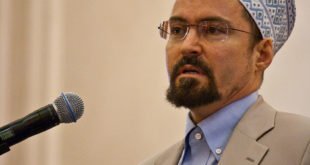20 November 2004, Cairo Ahmad al-Farrag is one of the pioneers of religious television broadcasting in the Arab world. His long-running program Nur ala Nur, or "Light Upon Light" was the first of its kind in Egypt and a model for future religious talk shows. It also was the first …
Read More »Made For Television Events
As news of kidnappings and beheadings flowed out of Iraq this summer, it was easy to assume that Iraq had fallen into a state of primordial chaos. The brutal forces of tribalism and barbarity appeared to be triumphing, and the modern appeared to be giving way to the medieval. Such …
Read More »Islamic Satellite Channels and Their Impact on Arab Societies: Iqra Channel-a Case Study
This paper was presented at a conference organized by The Centre of Middle Eastern and Islamic Studies at the University of Cambridge on "Arab Satellite Broadcasting in the Age of Globalization" held 1-3 November 2002 and is reproduced with the permission of The Cambridge Arab Media Project. This version has …
Read More »The Proposed Satellite Television Channel of the Organization of the Islamic Conference: A Response to Moral Panic?
I. INTRODUCTION The Organization of the Islamic Conference (OIC) held its ninth conference in Doha, the Qatari capital, during November 2001. Members decided to establish an Islamic English-language satellite television channel. The main aim of such an initiative is apparently to educate the West about "real Islam," in light of …
Read More »Two Entertainment Issues Preoccupy Egyptian Press in Ramadan
Reprinted from Al Hayat, 7 November, 2004, p.21, with permission. This year's Ramadan brings in its train, as usual, hundreds of serialized dramas, talk shows, and other standard format programs of the sort that increase year after year as a result of the burgeoning number of Arab satellite channels. What is …
Read More »On a Journey with Hamza Yusuf
Hamza Yusuf Hanson was born in Walla Walla, Washington, and raised in northern California. He became Muslim in 1977 in Santa Barbara, California and subsequently moved to the Middle East and studied Arabic and Islam for four years in the United Arab Emirates and later in Medina, Algeria, Morocco, and …
Read More »Amr Khaled: Broadcasting the Nahda
In the aftermath of the attacks of September 11, 2001, renewed fears about the threat of "Islamic Fundamentalism" conjured images of bearded and turbaned zealots spoiling for holy war against the West. More than three years later, such stereotypes seem confirmed in the grim reality of the morning's headlines, as …
Read More »Interview with Sheikh Yusuf al-Qaradawi
17 October, 2004 in Doha, Qatar Sheikh Yusuf al-Qaradawi is one of the best known, longest established, and most controversial of Arab world satellite preachers. TBS's senior editor S. Abdallah Schleifer interviewed Sheikh al-Qaradawi in Doha about his relationship with the medium. TBS: When did you first start speaking about Islam on television? What …
Read More » Arab Media & Society The Arab Media Hub
Arab Media & Society The Arab Media Hub

